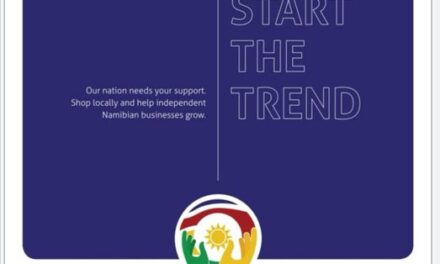
Broll anticipates the African real estate market to bounce back by Q1 2023

Leading Pan-African professional real-estate services provider Broll Property Group anticipates the African real estate market to normalise and bounce back to pre-Covid-19 levels by Q1 2023.
This is the key message from Broll Group CEO Malcolm Horne, who will deliver a keynote address at the 12th Africa Property Investment (API) Summit 2021 from 6 to 10 September.
“Our success is built on our in-depth knowledge and expertise, based on our tangible understanding of local markets across Africa. This allows us to provide end-to-end real estate solutions based on strategic, fully-integrated property services for both the occupier and investor segments. As a leading provider of end-to-end real estate solutions, an interesting correlation that we are monitoring is the potential relationship between the vaccination rollout in Africa and the associated economic recovery across the continent,” said Horne.
This is particularly important to Broll’s mission of leveraging its industry-leading, patented technology platforms to enhance asset values in a sustainable real estate market. “I do not necessarily think that we will trend the same as what you see in First World countries, which anticipate the bulk of the jobs shed due to Covid-19 to be largely regained by year-end. This will be an important driver of the global recovery.”
Many of the trends dominating the international real estate market at present were already prevalent or on an upward tick prior to Covid-19. “A lot of the trends we have seen, whether globally or in Africa, had their roots before the pandemic. It was not a case of Covid-19 suddenly leading to massive change. It did accelerate market trends, especially as the sectors benefiting now had already started to grow prior to Covid-19.”
Looking at the international real estate market, Horne says the obvious winners at present are industrial, data centres and lifestyle, the latter focused on well-being and healthy living, in addition to healthcare. “These have done very well. However, if you compare it to Africa, they have fared equally well.”
Thus, there seems to be a real correlation across the board between those resilient sectors that have stood out. In Africa, industry, data centres and hospitals have been at the forefront of much development. Secondary emerging investment sectors that are rapidly gaining traction include cold storage, self-storage facilities and affordable housing.
“The real challenges lie in offices, retail and hotels,” says Horne. In the case of retail, the sector continues to attract investment. “Yes, there have been major retailers exiting some African markets, but if you look at the international trend, a lot of landlords have actually invested in retailers in order to get them going again. We have observed a similar trend in Africa in terms of a resurgence of local investor interest in the retail sector.”
In terms of the office sector and the global ‘work from home’ phenomenon, while a general return to the office environment is predicted by Q3 this year, with a hybrid model most likely to be adopted, Africa is an interesting exception. “Due to the slow rollout of vaccines across the continent, a lot of companies are still working remotely as a result.”
However, Horne does not expect the office sector to necessarily shrink in size as companies downsize or consolidate. “Offices are going to have to be repurposed for increased spacing between workers, which will result in fewer employees per square metre and the adoption of more flexible workspace solutions. Hence there will be fewer people, but the space will remain the same.”
Horne is bullish about the impact of Covid-19 going forward, especially as Broll’s mission is to ‘strengthen the core’ of the business so it can remain resilient and flexible. The Group has a clearly-defined five-year strategy to take it ‘beyond 2021’, and to future-proof the business as it continues to explore opportunities for further growth and expansion in Africa.
As for the future trajectory of Covid-19, vaccines will likely have gained much momentum globally by Q4 this year. While the vaccination rate in Africa remains low, there is a lag period that has to be taken into account. “We therefore estimate now that the impact of Covid-19 will still be felt for another year at least,” predicts Horne.
“Hopefully by Q1 2023 the supply and demand issues related to the vaccines will largely have been resolved, with a sufficient supply to Africa so we can gain momentum across the continent in terms of the vaccination drive. That will be positive and see the start of a ramp-up in economic activity. In most countries people are back in the malls and spending. It is crucial that lockdowns are not instituted again, which is why the successful vaccine rollout is so critical.
“Hence by the start of 2023, African economies will start to normalise and head back to pre-Covid-19 levels of activity. We are already seeing this shift globally, where economies have plans in place for job creation, reshaping and expansion by as early as the end of the year. However, we do not anticipate any significant movement in the investment market until probably Q2 next year.”
Despite these challenges, Broll remains committed to future-focused thinking in order to unlock new solutions, opportunities and partnerships, especially across Africa. “The phrase to ‘strengthen our core’ is a perfect summation of this approach, as it reveals how we plant to leverage off our expertise in order to continue to promote innovation and growth in all that we do.”
Horne highlights that the API Summit is a platform that attracts investors and occupiers, service providers and financiers. “It is one of the few events on the continent that is actually an aggregator of whomever is interested in occupying or investing in real estate. It also cuts across all sectors, from residential to commercial.”
The high-level speakers showcased at the event also goes a long way for setting the tone and trends of the real estate market in Africa. “This not only talks to the importance of the event, but the important role that property plays in building economies and creating employment. It has been proven time and again that the property sector is one of the greatest job creators in developing economies. If countries can just get their property sectors formalised, developed and growing and rebuilding, it will not only generate employment and wealth, but can result in wholesale economic transformation.”












































